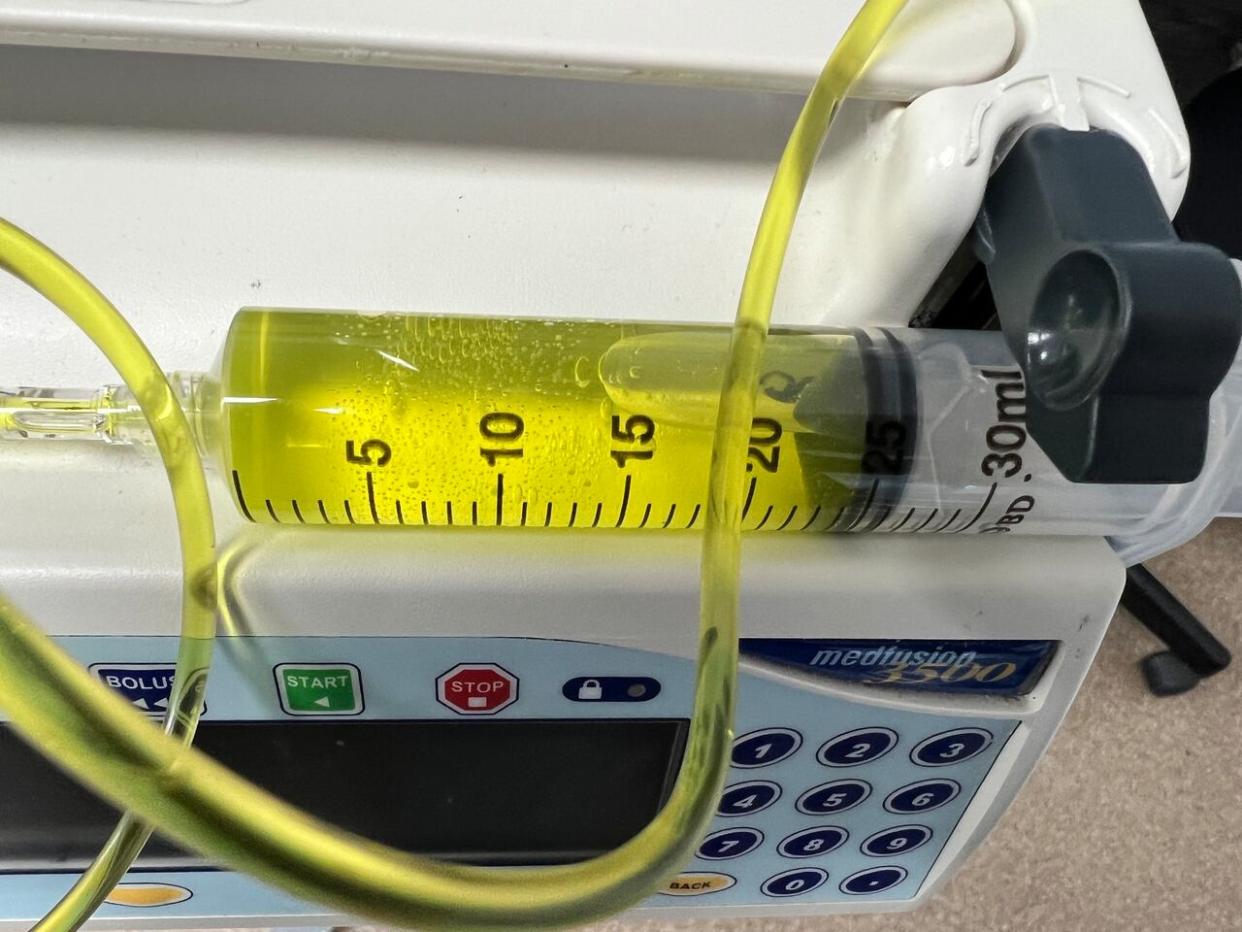National drug shortage triggers some heart testing delays in Alberta, doctors say

A countrywide shortage of drug used for heart imaging is sparking testing delays for some Alberta cardiology patients.
Dipyridamole, a medication administered intravenously during heart imaging procedures for people who can't do traditional stress tests on a treadmill, is now in short supply.
The drug dilates blood vessels, replacing the effect of exercise, during myocardial perfusion scans, which show how well blood is flowing through the heart muscle.
Health Canada declared a Tier 3 shortage of dipyridamole injections in June, meaning it has "the greatest potential impact on Canada's drug supply and health-care system."
"I have no dose for anyone right now," said Dr. Anmol Kapoor, a cardiologist at Advanced Cardiology Consultants and Diagnostics in Calgary.
He ran out of out of dipyridamole last week and is now postponing the tests, which can show if a patient is developing critical heart blockages.
"It's very important. This is a life-saving test and it's very frustrating that we can't access the medication."
Kapoor's team has been trying to source the drug, as well as a more expensive alternative, with no luck.
This is the latest hit to the availability of heart medication in the country. Nitroglycerin has been in short supply for months.

Dr. Anmol Kapoor, a Calgary cardiologist, stands beside the machine used to take nuclear images during the procedure. (Anmol Kapoor)
Dr. Steve Tilley first heard about the dipyridamole shortage in mid-June. Now his Red Deer clinic is out, too.
"A lot of patients are kind of in limbo," he said.
"We tell them, unfortunately, that there are symptoms that could very well be related to blockages in the arteries in the heart. But we, unfortunately, do not have any way to get them that information until the supply … improves."
Tilley, who is the section president for cardiology with the Alberta Medical Association, said he's hearing from colleagues around the province with similar problems.
According to Tilley, the majority of these scans (he estimates 80 to 90 per cent) are done privately in Alberta, through community-based clinics.
"We have no word from the supplier when more is going to come.… And the tests needed to be done are just piling up."
Dr. Tim Boyne, a cardiologist and the director of nuclear cardiology at TotalCardiology, said his Calgary-based clinic is getting about half its usual supply and he expects waitlists, for some patients, will grow.
"We're trying to decrease our consumption. We've asked the hospital as to whether they have excess material that they can share and they are sadly facing the same predicament that we are."
According to Boyne, there are several reasons patients may not be candidates for a traditional cardiac stress test, including an inability to walk on a treadmill due to mobility issues and a heart condition that can trigger false results.
One option, he said, is to send patients to hospitals for tests because those facilities have access to different drugs.
"Their waiting lists will be adversely affected as well."
Alberta Health Services said it's monitoring the national shortage and it has not affected patient care in its facilities.
"AHS is working with Health Canada on mitigation strategies to replenish supply, including an expiry date extension and the importation of foreign-authorized product," spokepserson Kerry Williamson said in an emailed statement.
"AHS has a well-developed provincial process to manage drug shortages and do our best to minimize or completely avoid any impact to patient care."
On the Drug Shortages Canada database, the pharmaceutical company cites a manufacturing disruption as the reason for the shortage and lists the estimated end date as Aug. 18.
It's putting patients at risk," said Dr. Surinder Khinda, an internist and director of Alberta Cardiology and Medical Consultants in Edmonton.
He said patients are often referred to the clinic from the emergency room for myocardial perfusion tests.
"People who present with chest pain may have undiagnosed blockages or coronary artery disease. It carries a risk of a heart attack."
CBC News reached out to Health Canada for a response but did not hear back before publication time.
Meanwhile, Kapoor is frustrated his patients are facing yet another shortage of a key heart drug.
"It's quite shameful as a country, as a G7 country, we're struggling to give medications to our citizens — our taxpayers — on time," he said.


